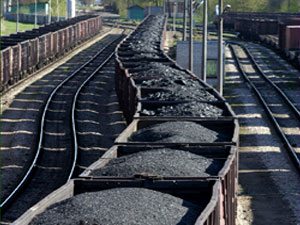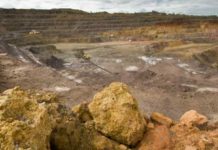
[miningmx.com] – THERE was a time, less than two years ago, when Mozambique declared itself ready to ride the crest of the resources wave. It would, for instance, become a 100 million tonne/year (mtpa) exporter.
Mineral sands and gold were also in development while the country’s power deficit would be addressed with new coal-fired energy plants. Offshore northern Mozambique, in the so-called Rovuma gas fields, European and North American energy exploration firms were discovery enormous resources.
While those plans and resources have not disappeared, and while the Mozambican government has kept a remarkably steady hand on the tiller, the investment climate has chilled somewhat in the last 12 to 18 months.
Part of the reason is the emergence of Renamo, the guerilla organisation that fought the existing Frelimo-backed government in a civil war that only ended in 1992, and at an enormous cost with some 1 million lives thought to have been lost.
Shootings at a terminus on Mozambique’s Sena rail route that links the coal-rich Tete province with Beira on the coast, and angry rhetoric from Afonso Dhlakama, the Renamo leader, have led to calls for urgent meetings between the civil war foes.
Owing to the killings, the UK-listed Anglo-Australian mining group, Rio Tinto, suspended coal freight on the Sena line – a development that smacked the share price of other operators in the region such as Beacon Hill Resources, a UK-listed firm.
“The remarks Renamo has been making in the press have been seen negatively by investors. Our share price dropped 30% overnight and it’s a big blow to us,’ said Rowan Karstel, MD of Beacon Hill Resources.
Risk analysts say Dhlakama’s comments were only ostensibly about distributing more widely the riches from the country’s mineral wealth. The fact of the matter is that municipal elections are fast approaching in Mozambique, followed by national elections next year.
“Renamo is capitalising on some public disgruntlement but municipal elections are coming up so it is probably raising its national profile,’ says Simiso Velempini, an analyst for Control Risks. “Renamo’s recent activity also reflect its inability to compete with Frelimo on a political level,’ she said.
Still, Renamo had shaken investor confidence as well as the Mozambican government’s ability to create a conducive environment, Velempini said.
Analysts think that the investment focus will fall more squarely on the gas exploration side where capital spend tends to be heavy anyway, and often in risky geographies. But from a coal mining perspective, Mozambique’s most attractive asset after gas, the signs have been ominous.
Anglo American withdrew from an option to invest $555m in the Revuboe coking coal prospect while Rio Tinto wrote down $3bn of its $4bn investment in its Mozambique coal fields. The quality of coal in Mozambique has also been questioned.
Said a Johannesburg banker who frequently runs the rule over Mozambique: “There’s the saying that in a hurricane [mining boom], even turkeys can fly. Now we’re seeing some of the turkeys falling out of the sky,’ he said.
“The sentiment was overly optimistic; they felt they would make bucket-loads of money. But the coal in Mozambique is not spectacular and only part of it is coking coal which is needed to make money,’ he said. “So there was plenty of talk about volumes, but very little talk of margins and profit-making.’
Jenik Radon who is adjunct professor at the School of International and Public Affairs at Columbia in New York, says managing expectations is a key challenge in any emerging market.
“Once development starts you have to manage the hopes of people who often don’t appreciate things take time. In fact, managing expectations is not just a challenge, it’s an art-form’.
Brazilian iron ore and coal miner, Vale, has run into community opposition lately around its Minas Moatize operation. On several occasions, mining activities have been blockaded by community members, some of them displaced, and who claim to have been insufficiently compensated.
“Communities need to see the benefit of putting up with disturbances over and above compensation. They have to be better off after than before [mining],’ said Professor Radon.
On the ground, Mozambique remains open to investment. Dean Cunningham, CEO of gold exploration company, Auroch, says he hasn’t noticed any major change in the mood of investors. The company raised $3m recently but will have to return for more cash before long. “Then we’ll see if there’s interest from the various players on a long-term basis,’ he said.
“Generally speaking, Mozambique comes out smelling a lot better than most of its neighbours,’ Cunningham says.








